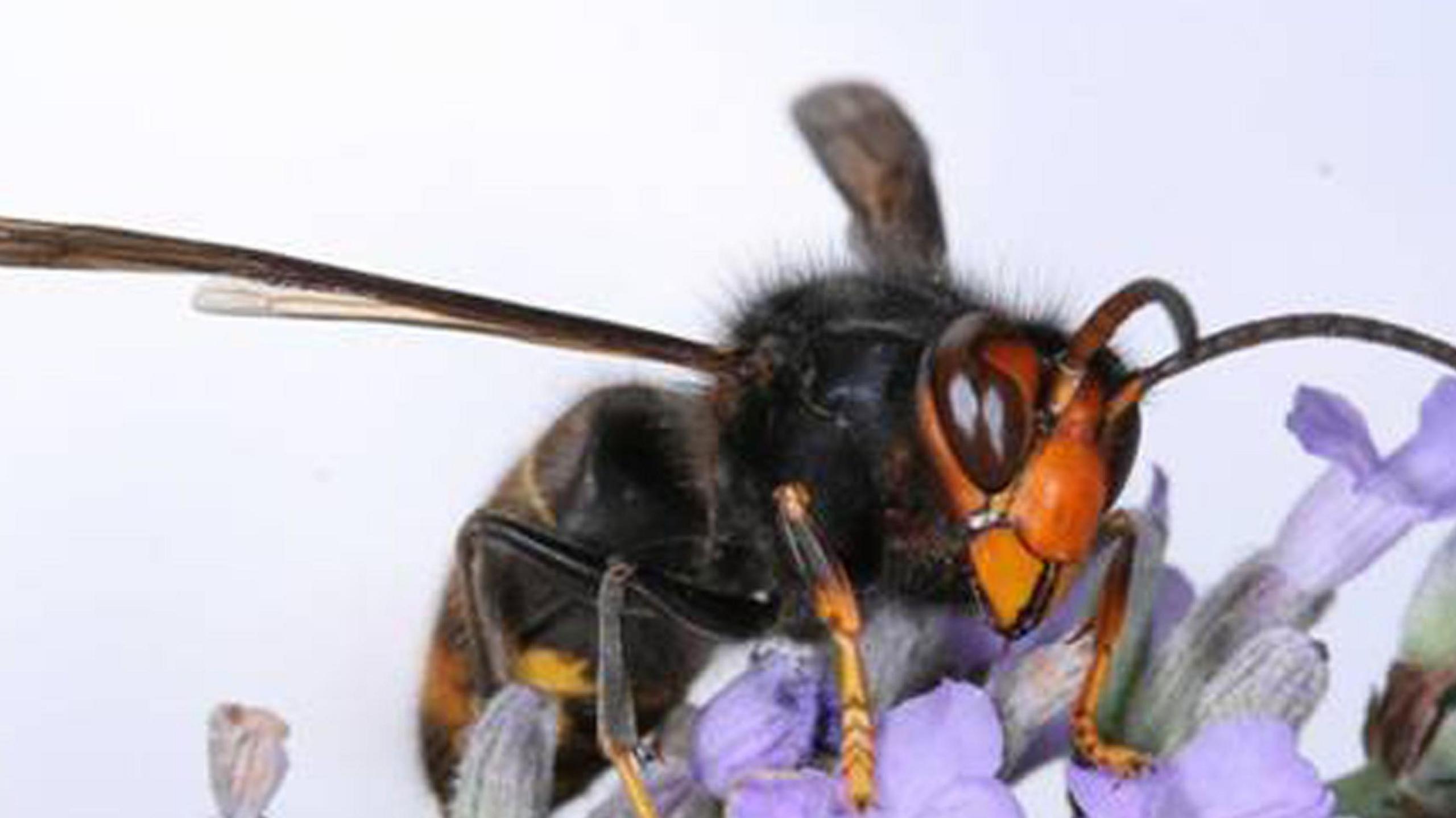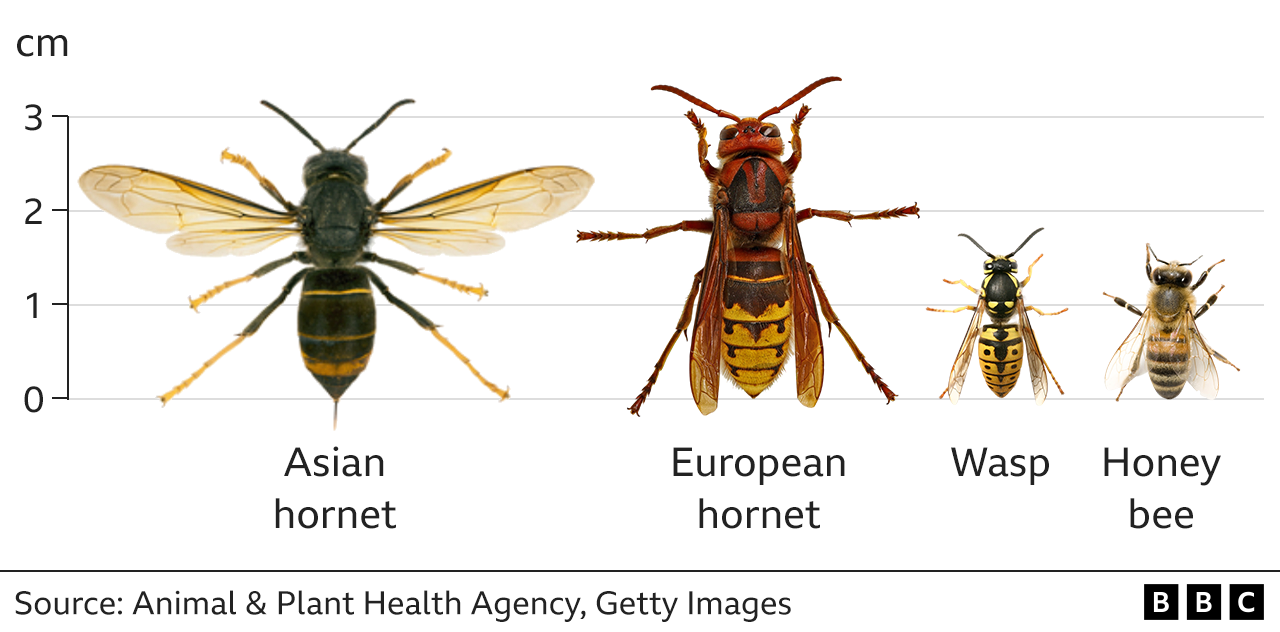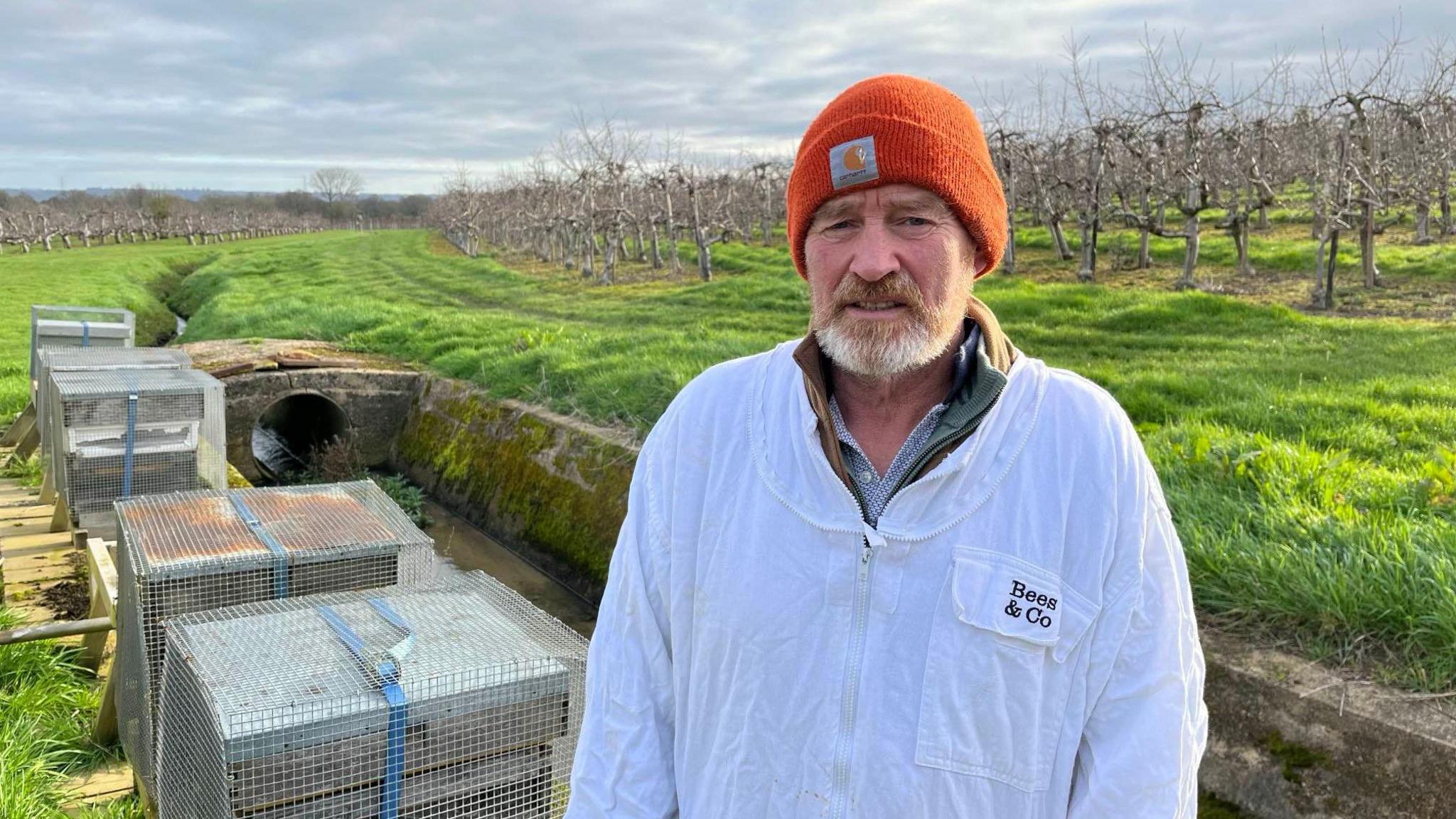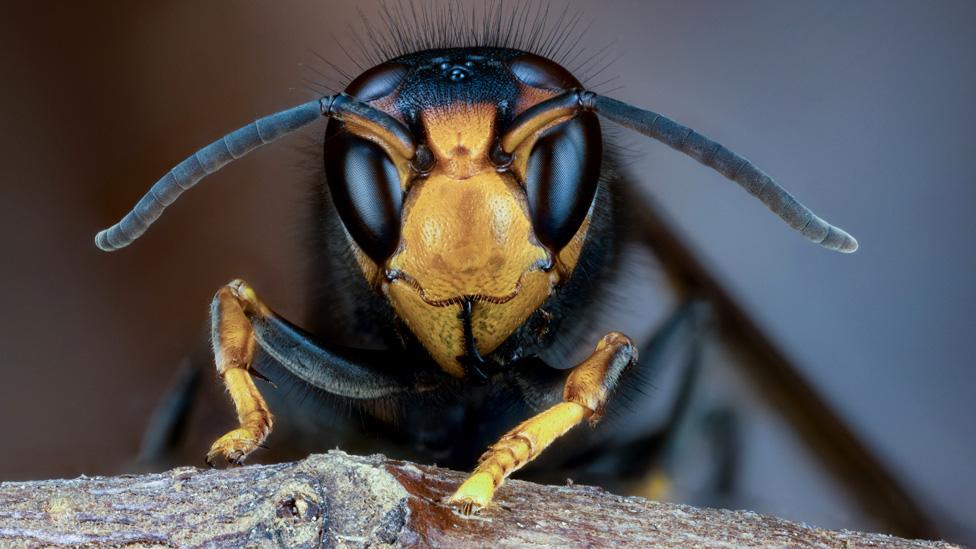Warning over Asian hornets after record sightings

Asian hornets are known to kill honeybees
- Published
A record number of sightings of Asian hornets in the UK last year has prompted experts to urge people to remain vigilant.
The National Bee Unit said it destroyed 72 nests in 56 locations in 2023 – most of which were in Kent.
Asian hornets pose no greater risk to human health than native hornets, but are a threat to honey bees and insect pollinators.
While the species is not established in the UK, early trapping is fundamental to eradication efforts, according to the Department for Environment, Food and Rural Affairs (Defra).
There have been 108 sightings of Asian hornets since 2016, of which 56 were in 2023, according to government figures.
Eight have been reported in the UK so far this year.
The South East - and Kent in particular - is on the front-line of the battle to tackle the invasive species.
The British Beekeepers Association confirmed an Asian hornet was found in a potting shed in Ash, near Sandwich, in March.
The association said the finding was about five miles from a nest found and destroyed in 2023, near Canterbury.
A report of a hornet in Folkestone was submitted in April.
'Problem species'
Asian hornets have very dark bodies, a wide orange stripe on the fourth abdomen section and yellow leg ends.
Sightings can be reported via the Asian Hornet Watch App., external

The Wildlife and Countryside Link warned recent flooding and warming temperatures had increased the risk of “problem species” already in the UK growing and spreading.
This includes Japanese knotweed, which can cause structural damage, giant hogweed, with sap that can cause burns to skin, and Himalayan balsam, which out-competes native species and increases flood risks.
Defra said: “Invasive species threaten our native biodiversity and cost the economy billions every year, which is why we support the Invasive Species Inspectorate in carrying out their role to protect the nation’s biosecurity."
The department said Asian hornets are not generally aggressive towards people, "but an exception to this is when they perceive a threat to their nest".
Follow BBC Kent on Facebook, external, on X, external, and on Instagram, external. Send your story ideas to southeasttoday@bbc.co.uk, external or WhatsApp us on 08081 002250.
Related internet links
- Published19 March 2024

- Published4 September 2023
